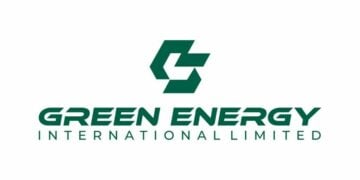Investors’ investment in the Nigerian stock market rose by N27.818 trillion, driven by the federal government’s foreign exchange, among other reforms that have boosted confidence in the first nine months of the year.
The overall market performance measure, All-Share Index (ASI), which tracks the general market movement of all listed equities on the Exchange, rose by 38.65 per cent to close at 142,710.48 points in the first nine months of the year from 102,926.40 points it closed on December 31, 2024.
Also, the market capitalisation gained N27.818 trillion to close on September 30, 2025, at N90.581 trillion from N62.763 trillion at which it opened for trading activities on January 2, 2024.
Analysts have attributed the stock market 38.65 per cent investors average return to stability in the foreign exchange market, companies recovering from foreign exchange losses, market liquidity, capital inflow, dominance of domestic investors, increasing portfolio investment, Central Bank of Nigeria (CBN)’s banking sector recapitalisation and insurance sector reforms.
The year opened with strong momentum, driven by portfolio repositioning and significant capital raises by tier-1 banks. Trading activity by volume and value peaked in March, driven by impressive full-year 2024 corporate earnings.
However, activity moderated at the start of Q2. As the quarter progressed, the market regained traction, buoyed by improving macroeconomic indicators, solid Q1 earnings, and corporate actions. Despite intermittent profit-taking and lingering policy uncertainty, the nine-month performance highlighted strengthening investor confidence and corporate resilience, setting the stage for a potentially more active fourth quarter.
From a sectoral standpoint, performance was predominantly bullish year-to-date as of September 26, 2025. The NGX Consumer Goods index emerged as the best-performing sector by 96.16 per cent in nine months. The NGX Insurance index increased by 72.39 per cent, while NGX Lotus II increased by 68.65 per cent.
NGX Pension index, NGX Premium index, NGX Industrial Goods, NGX Banking index, NGX 30 index posted a growth of 47.69 per cent, 41.29 per cent, 39.82 per cent, 39.14 per cent and 35.88 per cent respectively in the period under review. On the other hand, the NGX Oil and Gas index recorded a year-to-date loss of 9.8 per cent.
The managing director of Globalview Capital Limited, Aruna Kebira, stated that the stock market in the nine months of 2025 witnessed the tanking of inflation figures and the CBN cutting the interest rate to 27 per cent from 27.50 per cent.
“Those parameters alone gave the capital market investors a moment of respite in the nine months of 2025. The yields in the money market are not as attractive as in 2024, making discerning investors in search of better yields consider the capital market as their investment destination.
“In the last MPC, the MPR was reduced, including other metrics. This sends positive signals that, as the inflation figure and money market yields are downward-looking, the MPC would have a reason to tinker with the MPR further downward, which is not always fixed-income friendly.
“If the various issuers demonstrate a performance higher than the corresponding period of 2024 and declare an impressive interim dividend, the stock market will move to appreciate their prices.
“I also see an improvement in the liquidity around the stock market arena, which will boost market participation and invite the bull into the market,” he added.
Afrinvest Limited noted that “following the stellar 31.3 per cent return in 2024, which positioned the Nigerian equities market as one of the best-performing in Africa, investors approached 2025 with optimism.
“However, market performance in Q1 was largely subdued as tight monetary conditions and elevated interest rates triggered a rotation into the fixed-income market, where yields on government instruments hovered around 30.0 per cent. “Despite the weak start, sentiment improved in Q2 and Q3, bolstered by impressive corporate earnings, dividend declarations, improved FX stability, and easing inflation.
“On this backdrop, buy interest resurfaced in fundamentally strong tickers, especially in the banking and telecommunication sectors, where investors hunted for value amid attractive entry prices.”
Looking ahead, Afrinvest stated, “We maintain our market projections as most of the current market dynamics still align with our prognosis at the beginning of the year. For the full year 2024, we still project a 30.4 per cent gain in our base-case scenario, driven by expectations of a sustained pace of banking sector capital raise, fixed-income yield moderation, fiscal policy reforms & accelerated CAPEX spending, improved FX stability, and the possibility of some major corporate listings on the NGX.”





